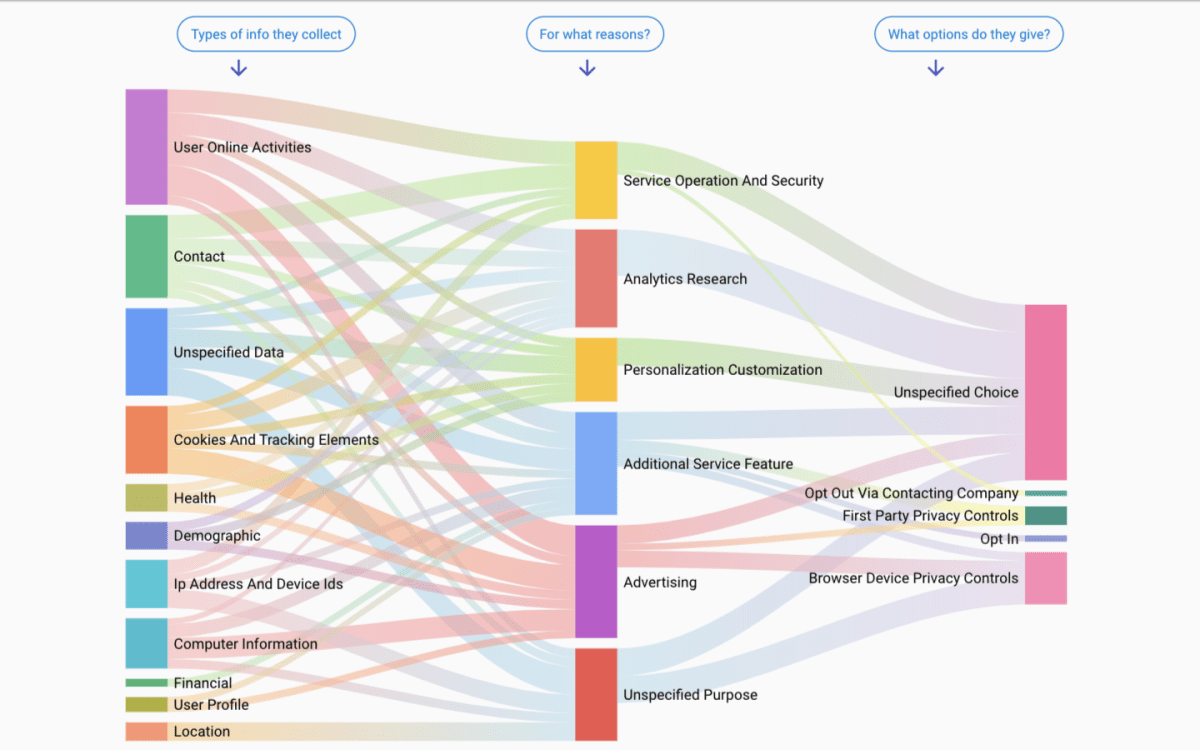
Visualized Summaries
“I have read and understood…” has got to be one of the biggest lies people commit on a regular basis. It’s the typical ending for the long-winded customer agreements or privacy policies attached to every online service, which few ever read. Or at least, not in their entirety.
When humankind finds something difficult, we typically build a gizmo to do it for us — and this case is no different. It turns out, reading lengthy fine-print is the expertise of a machine-learning artificial intelligence (AI) designed by researchers from the Federal Institute of Technology at Lausanne, Switzerland (EPFL), the University of Wisconsin, and the University of Michigan. Their research began with a question, said lead researcher Hamza Harkous from EPFL.
“What if we visualize what’s in the policy for the user?” Harkous said in an interview with WIRED. “Not to give every piece of the policy, but just the interesting stuff.”
The question led to Polisis, which is short for “privacy policy analysis.” It works as a website and browser extension that can read and make sense of terribly long privacy policies in web services that cost users both time and, ultimately, money. Polisis can pull a website’s privacy policy and read it in around 30 seconds. It then comes up with a summary and a graphic flowchart that highlights how the online service handles a user’s data.
Digestible Chunks
The researchers trained Polisis using data sets from 115 privacy policies, analyzed and annotated by Fordham Law students, and 130,000 others taken from Google Play Store apps. What makes this AI appealing is how it’s able to transform a boring, wordy privacy policy into something that’s digestible. And if users are still having trouble with aspects of the agreement, the researchers have another service on their website — an AI-powered chatbot called PriBot that users can discuss privacy policies with.

Despite internet users claiming to have read a privacy policy, only about 20 percent actually do. Even then, they don’t necessarily understand the legal language embroidered with verbosity in every policy. That’s why Polisis could be so useful — helping internet users protect their privacy similarly to how a lawyer chatbot helped resolve driver’s parking ticket issues.
A bit of a fine print here, though. Even with a powerful tool like Polisis, the barest minimum effort is still required from the human user. In other words, a policy summary is not helpful if you don’t actually bother to read it. The AI can help, but human users have to help themselves first.